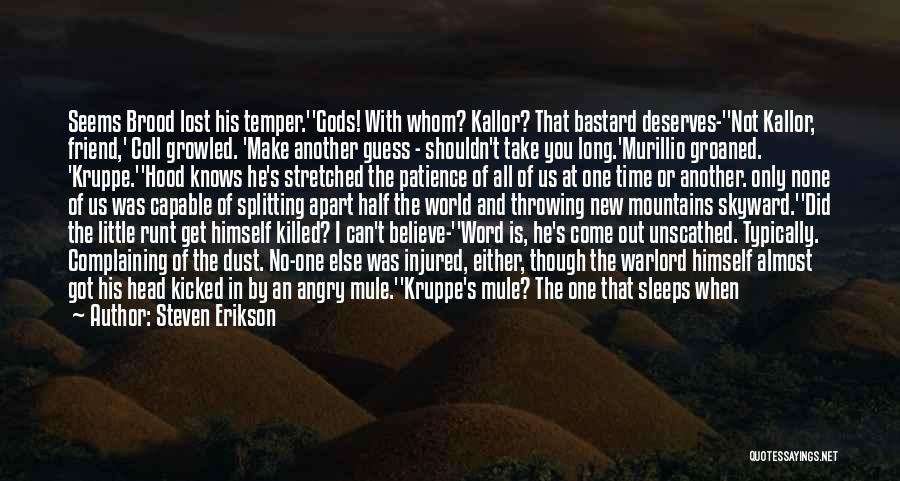Best Friend Splitting Quotes & Sayings
Enjoy reading and share 4 famous quotes about Best Friend Splitting with everyone.
Top Best Friend Splitting Quotes

Getting out of a marriage is rough, though, and not just for the legal / financial complications or the massive lifestyle upheaval. (As my friend Deborah once advised me wisely: "Nobody ever died from splitting up furniture.") It's the emotional recoil that kills you, the shock of stepping off the track of a conventional lifestyle and losing all the embracing comforts that keep so many people on that track forever. — Elizabeth Gilbert

Seems Brood lost his temper.'
'Gods! With whom? Kallor? That bastard deserves-'
'Not Kallor, friend,' Coll growled. 'Make another guess - shouldn't take you long.'
Murillio groaned. 'Kruppe.'
'Hood knows he's stretched the patience of all of us at one time or another. only none of us was capable of splitting apart half the world and throwing new mountains skyward.'
'Did the little runt get himself killed? I can't believe-'
'Word is, he's come out unscathed. Typically. Complaining of the dust. No-one else was injured, either, though the warlord himself almost got his head kicked in by an angry mule.'
'Kruppe's mule? The one that sleeps when it walks?'
'Aye, the very one. — Steven Erikson

He accomplished this primarily by hooking up with his best friend, Henry Goldman, before the Goldman Sachs partnership. (They toyed with creating Goldman and Lehman but instead decided on splitting the profits 50/50.) — Kenneth L. Fisher

Great artistic works are often based on solving several psychological problems simultaneously. In literature this is often accomplished by splitting apart the conflict and assigning each aspect to a different character. Marjie Rynearson, for instance, wrote an award-winning play, Jenny, about the meeting and reconciliation of two women: the mother of a murder victim and the mother of the murderer. Within the dialogue between the two characters she sought to resolve two sets of problems: the rage and grief of the victim's mother, and the horror, guilt, and grief of the murderer's mother. She worked on the play for several years, and only when it was finished did she realize that through it she was struggling to resolve her feelings about the suicide of her best friend. Rynearson had simultaneously been, in effect, both the friend of the victim and the friend of the perpetrator of the killing. The power of the work lay in its simultaneous resolution of conflicting problems. — Linda Austin





